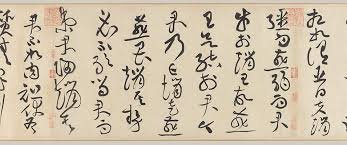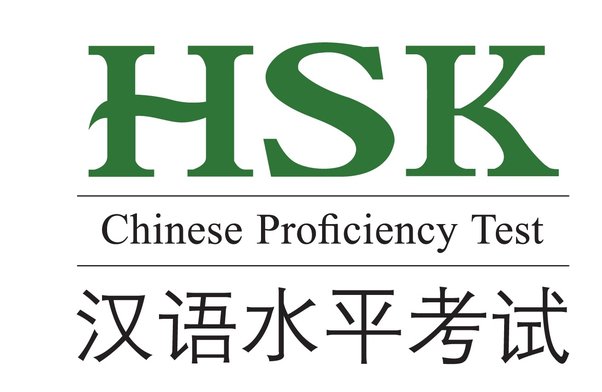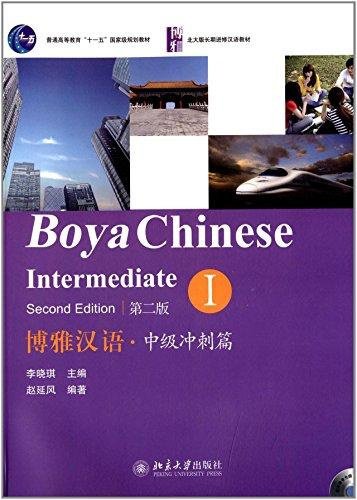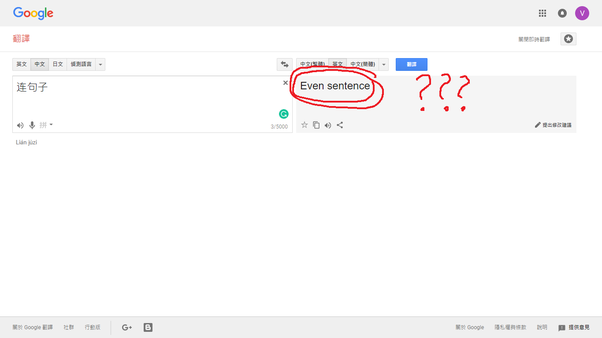As a former Chinese beginner-level learner, I could give you my 2-cents in regard to 10 bad habits that many freshers have when they start learning this awesome language.
I rarely do a ‘’top 10′’ style of answer, but this time will be different, for the sake of efficiency.
- Overlooking pinyin.
For many foreigners, ‘’learning Chinese’’ equates in their minds as learning this.

Grass script (草书) might be the purest expression of Chinese aesthetic, but you won’t read it before a while.
You see, before getting into the ‘’tough parts’’ of the language, one must know what he or she is seeking for. And pinyin is the perfect tool to make you familiar with Chinese phonetics, tones, speech patterns, and your essential SVO grammar.
Pinyin is a necessary step. Despite its ‘’easy peasy’’ looks, this is a necessary step for anyone looking to learn Chinese properly.
Don’t bother listening to what many local Chinese might say: Failing to learn pinyin correctly will inevitably come back haunting you down the road.
2. Choosing the Wrong Teacher
As a rule of thumb, I can tell you straight away that the Chinese fresher, recently graduated from a UK/USA university and proposing his/her services as a ‘’Chinese teacher’’ is incompetent for this task.
And the same can be told about 95% of the CSL teachers in China.
Why? Due to the fact that the Chinese education system overly relies on strict academic conformity, their teaching methods are mostly out-of-date, unsuitable for foreigners or simply just bad.

The (in)famous HSK test, the ‘’gold-standard’’ for CSL teachers in China, is nothing more than a glorified vocabulary cram test.
Why? Because teaching Mandarin to foreigners was virtually unheard of before the early 1980’s. Thus, for many years, CSL teachers simply took their teaching methods that were successful with countryside children (the ones who used to be not fluent in Mandarin dialect) and apply these methods to grown-up foreigners.
As a rule of thumb, if you are old enough to read this answer in English, you are both too old and outside the targeted culture group to answer positively to these teaching methods.
On the other hand, I believe that finding the right CSL teacher would deserve its own thread for itself.
And I would be glad to answer that question if requested.
3. Ignoring Chinese Grammar
Despite its counterintuitive phrasing, this advice is really important.
First, most of the actual ‘’standard learning materials’’ aimed for foreigners (博雅汉语 – Boya Chinese,发展汉语 – Developing Chinese,etc) have this fundamental issue: They use English as a pivotal language to introduce the CSL student to Chinese grammar.
By doing so, they use English grammatical concepts as a common ground for comparing two languages that have nothing in common.

Bad, bad, bad, bad…
As a matter of evidence, I will give you a short example, something called in Chinese ‘’连句子’’ or ‘’linked-sentence sentences’’ (sorry for the poor translation, but it is what it is!)
In modern Chinese, 连句子 are very frequent. For instance, if I want to say the equivalent of two English sentences, for instance.
- My teacher makes me study.
- I study Chinese.
The most logical thing to say in English would be:
‘’My teacher makes me study Chinese.’’
Super easy, right?
Well, after two years of using the above-mentioned garbage books, I was still unable to express these basic sentences that rely on two juxtaposed concepts.
Why? Because the English grammar does not have the equivalent of 连句子, thus the book will not cover it.
Stupid as that.

Way to go Google!
Therefore, I strongly suggest to you to purchase Chinese grammar books and have a Chinese friend or a private teacher help you navigate through your target language grammar with its indigenous concepts and rules.
Otherwise, if you keep going with the ‘’recommended books’’, you will quickly notice that your Asian classmates who are unable to understand the English comments and descriptions end up with a better working knowledge of Chinese language than their US/UK counterparts for whom the books were designed for.
Much irony?
4. Not Speaking
This is a very common mistake. You see, when you get older, everybody starts setting their own goals, objectives, career milestones and they slowly drift toward their own miserable and inescapable death.
Wrong topic, sorry.
But when it comes to language learning, there is a major difference between young learners and ‘’more mature’’ learners: the latters are living in their own ego-trip world.
And it makes a major difference in the language learning curve.
You see, when kids start to realize that they study in a non-threatening environment where the teacher is simply giving them guidance, they can become incredibly talkative despite their target language level.
Which is awesome. A few months later down the road, they will be fluent.
With most adults, SL teachers are walking to Ghost Town and back.
This kind of attitude is pervasive. First, it will make you unable to test yourself about what you know and what you don’t know. Second, your teacher won’t be able to give you any kind of feedback on your non-existing interventions.
Make a big boy/big girl out of yourself and speak ffs!
5. Speaking too fast.
You did listen to my word young padawan and I am very proud of you.
You. Now. Speak.
However, there is another reef on which many CSL learners tend to wreck themselves on, which is the island of ‘’If-I-Speak-Very-Fast-I-Don’t-Need-To-Pronounce-My-Tones’’.
This is, Dear Reader, the best way to stall your Chinese conversational skills forever.
You see, as mentioned above, pinyin is an uber-great tool for learning Chinese. And among the things that you will learn, tones are going to be a major part of it.
However, for the laziest students out there, tones are also their main source of frustration, thus making them very likely to skip this source of pain and speak ‘’garbage Chinese’’ directly.
‘’Garbage Chinese’’ is its own special dialect only spoken by foreign loathers that you will meet in China’s biggest cities bars. They usually tend to speak Chinese only under the influence of alcohol, speak Chinese to the waitresses only for purchasing the said alcohol and will try to convince everyone around them that tones are ‘’so overrated anyways’’.
Just don’t be one of them.
I suspect my friend’s dad to be one of them and after more than 20 years in China, his Chinese is still insufferable.
6. Cramming Vocabulary
‘’Cramming vocabulary is a necessary activity for the preservation of social harmony in the Middle Kingdom.’’
It’s a joke but everyone is doing it here, anyways.
You see, according to most Chinese ESL teachers, the best way to learn a language is by rote memorization.
Ten years down the road and none of my Chinese classmates are able to speak a single sentence in English.

Success, I guess?
But don’t worry Dear Reader, if you come here, you will have this tremendous life opportunity to cram vocabulary word lists as well.
Despite the fact that paraphrasing with a decent grammar will make yourself able to get out of trouble 99% of the time when you are dealing with a Native speaker, these above-mentioned books solely emphasis vocabulary and sentence structure memorization.
Let’s do the maths.
According to the Chinese Ministry of Education, CSL preparatory classes are set on a two semesters basis.
Every semester includes 4 classes of Chinese (namely: ‘’reading, listening, spoken and written’’) which last 2 hours. Furthermore, every class is taught at least twice a week.
Which brings us to the grand total of 16 hours per week, which is the minimal amount of time recommended by the authorities.
However, when looking at Boya Chinese or Developing Chinese guidelines, the teacher should initiate the students to, at least, 25 new vocabulary words per lesson on average.
25 x 8 = 200 new words per week.
Coupled with the fact that classes are spread on a 19 weeks schedule in China.
200 x 19 = 1,800 words per semester.
Times 2, due to the two semesters per year.
1800 x 2 = 3,600 words per year.
I kid you not.
According to most linguistic studies, most people use an average of 3,000 words every day for their daily needs. Thus, according to this fact, the whole CSL system wants to make foreigners able to use the same vocabulary range than natives do, which is nothing less than an insane goal, especially if you don’t tell them how to use these 3,500 words.
Therefore, I have frequently seen HSK-5 (+2,500 words) and HSK-6 (+5,000 words) holders who were unable to speak even the most basic Chinese.
7- Not Learning How to Read
This is where your personal goals will become important.
If you don’t mind speaking ‘’garbage Chinese’’ in order to binge drink on cheap beers, then learning the written part of Chinese will be useless for you.
However, if you truly want to make ‘’something out of your Chinese’’, may it be for studying abroad in China, starting a business or just to not sound like a toothless Chinese hillbilly, learning how to read in Chinese is vital.

Uncle Zhang wants you to shut up, drink hot water and learn Chinese properly.
8-Expressing Everything In Your Mind
Dear Reader, I absolutely don’t doubt that you probably come from a great and respectable family who taught you to speak out your mind in your quality of human being worthy of love…
The problem is China has a totally different set of values. And expressing oneself is also very different here than, let’s say, in the UK or in the US.
In fact, several key concepts to Western culture are non-existent in the Chinese language.
And paraphrasing won’t get you anywhere.
Just to give an idea, ‘’humor’’ 幽默 and ‘’personal privacy’’ 隐私 are both two very recent additions to the Chinese vocabulary.
An ‘’irony’’ and ‘’sarcasm’’ as a style of humor are still pretty non-existent.
On the other hand, you should also keep in mind that it is not because you can grammatically say something that you should.
Case closed.
Dear Reader, in case that you truly want to boost your Chinese skills to stratospheric levels, these are my two secret advice for the special ones willing to risk everything in order to master the world’s most unique language. 😉
9- Living in Foreigners-Only Exclaves
China has developed extremely fast these last years. Thus, foreigners are not as rare as they used to be. The problem is, because they believe that China is a ‘’big, scary place’’ they tend to herd together in some strategic locations such as Chaoyang district (朝阳区) in Beijing or Jing’An district ( 静安区) in Shanghai.
Once again, if you don’t mind only speaking English all day long, suit yourself.
However, if you truly want to learn Chinese, you should avoid these ‘’trendy new spots’’ at all costs.

Props to the guys of Mamahuhu who did an awesome skit about these places.
10- Not joining Extracurriculars
The whole Chinese society is built on ‘’common activities’’ made in a group. Thus, if you want to be part of society, you have to join these like-minded lads and girls and join whatever activity they propose you.

Even though your Western inner conscience yells for freedom and independence, you have to reason yourself and wholeheartedly join the ‘’masses’’.
Extracurriculars are extremely important for the development of your Chinese skills. First, they allow you to meet people with the same interests than you. Second, due to the fact that everybody is busy doing what he or she likes, nobody will complain too much about your obvious lack of linguistic skills.
There you go, these are my ten advice on ‘’How to avoid frequent time-wasting mistakes when you are a Chinese language beginner student’’.
All the best!